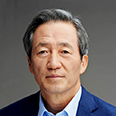South Korea-Japan relations is at its worst. There have been some good and bad moments since the normalization of diplomatic relations in 1965, but never as bad as today. Japan is imposing economic sanctions against us, and we are responding with anger and resolve.
The Korean people historically do not like Japan because of our tragic past. Our sense of victimization can be traced back to the Japanese invasion of 1592 and colonization during the early 20th century.
Japan invaded and ravaged Korea during the late 16th century under the pretext that they were waging war against the Ming China. Korea did not put up much of a fight until the Japanese invaders reached Pyongyang. There were approximately one million Korean casualties from this war. Japanese soldiers cut off the nose and ears of 185,000 Koreans as trophies from their exploits. The damage was beyond any description.
During the colonial period, more than one million Koreans were conscripted into forced labor and military service while as many as 200,000 were taken to be comfort women. We do not know exactly what happened to this day because Japan has been less than cooperative in disclosing and sharing their records with the world.
But if we take a look around the world, we see instances of countries overcoming their painful past to work towards a better future. This is especially true in the case of the U.S. and Japan, which appears to be on good footing in recent years. Up until the 19th century, the United States did not have a good understanding of Japan. Americans saw the emperor-worshipping Japanese as uncivilized. It was not until the Japanese attack on Pearl Harbor, which resulted in thousands of American casualties that the anti-Japanese sentiment reached an apex. Americans began cutting down cherry trees in Washington and some organizations in the U.S. began issuing “Jap hunting licenses.”. The U.S. government forced 120,000 Japanese Americans to be incarcerated in internment camps. Even to this day, U.S. presidents visit Pearl Harbor to commemorate the fallen heroes.
Japan also has painful memories. On August 6, 1945, the atomic bombing of Hiroshima resulted in the death of 64,000 Japanese. On August 9, the U.S. dropped a second bomb on Nagasaki as Japan’s Emperor was writing the Instrument of Surrender. Thirty-nine thousand people died that day, and about 700,000 more suffered from the effects of radiation. The Japanese claimed that the Americans conducted nuclear tests on the yellow race. Anti-American sentiment in Japan was at an all-time high.
After the end of World War II, however, Japan has built the world’s third-largest economy by relying on the United States for its national security. Japan seeks to revise the peace Constitution, which was originally drafted by General MacArthur, to transform itself into a country that can wage war. Tokyo’s move to amend the Constitution is not unilateral but pursued in close coordination with Washington. This is because Japan’s expanded role is part of U.S. grand strategy to check the rise of China. As the global order is undergoing a ground-shaking transformation caused by the competition between the U.S.-Japan alliance and China, there is a great storm brewing around the Korean Peninsula. I wonder if South Korea is prepared to deal with this impending storm.
A nation that forgets history has no future. But a nation that is solely obsessed with its past also has no future. Rather than dwelling on the past, we must compete and cooperate with Japan as equals. I am not suggesting that we ignore history. What drove us to be the world’s 10th largest economy is wisdom and hard work. “We can do it” – through confidence in ourselves, we successfully competed with other countries at the global stage.
Clausewitz stated that “the first, the supreme, the most far-reaching act of judgment that the statesman and commander have to make is to establish by that test the kind of war on which they are embarking.” War we must embark on is not one of history or trade. Our war is one with ourselves, as we seek to develop the capacity to defend the peace and prosperity of our country under any circumstances.
* The view expressed herein was published on July 26 in the Chosun Ilbo and does not necessarily reflect the views of the Asan Institute for Policy Studies

 Facebook
Facebook Twitter
Twitter